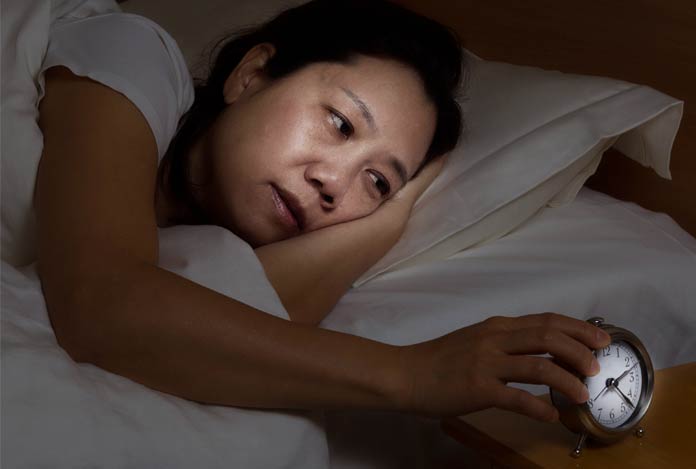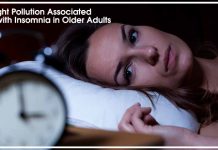
Relation Between Hormones and Chronic Insomnia

We all love falling asleep as soon as we get to the bed. No matter how much stressed we are, a good night’s sleep always resolves all the problems and you can wake up fresh the other morning. However, may women starts experiencing change in their sleep pattern as they grow old. Generally, when women are in their mid 40s, they start experiencing changes in their periods and encounter problems with sleeping. Generally, women can suffer from insomnia before the night their periods start. But, when their periods change and become irregular, it disrupts their sleep and they can often find themselves wide awake at midnight, unable to sleep.
Several treatments are available for insomnia. Some women prefer using OTC sleeping pills to get a better sleep. However, it can affect their body function and may make them feel sluggish. So, before we explore effective treatments for the condition, let us know what Dr. Marina Johnson says about the disease.
She says that it is a common sleeping disorder called insomnia. Women can suffer from this problem during their perimenopause or the menopause period because of the decline in the levels of estrogen and progesterone hormones in their body. Women suffering from this condition can experience wakefulness and can be very exhausting in long term. Generally, insomnia leads to sleeping pill addiction. However, the condition can be treated by normalizing the levels of estrogen and progesterone.
Also, this isn’t necessary that all the women experience insomnia during periods. This is the reason why such a problem goes unnoticed and women don’t realize that their hormone levels are low. Also, if the problem is ignored for a longer time, it can even lead to other conditions like anxiety, depression, sleep apnea, chronic fatigue, obesity, fibromyalgia, etc. So, what to do? How can we prevent this sleeplessness from getting severe and affect our life? Dr. Marina explains the ways that can help in promoting a good night’s sleep, these are:
- Try to go to bed at the same time every night and wake up at the same time every morning.
- Adjust the sleep environment, i.e., sleep in a dark and cool room.
- If necessary, use accessories like nightshades, sleep mask, or white noise.
- Avoid or limit the consumption of spicy or caffeine rich foods.
- Eat at least 3 hours before going to the bed.
- Don’t engage yourself in heavy exercise before the bed time.
- Avoid watching the 10 o’clock news or reading intense books before going to sleep, as they can affect the function of the brain and cause over-stimulation, which can lead to sleeplessness.
With these tips you can have a good night’s sleep and can check hormonal imbalance in your body. Dr. Marina says that seven to eight hours of sleep is enough for a person. Getting more or less sleep may be associated with a disturbed sleeping pattern. Moreover, the endocrine problems can cause sleep problems in both men and women. Also, it isn’t necessary that only estrogen and progesterone imbalances cause sleeping problems, it can also be due to disorders of testosterone, cortisol, thyroid hormone, or growth hormone.
Dr. Marina advices that if you are suffering from insomnia, you should visit an endocrinologist who can provide appropriate treatment and can also help you in balancing your hormone level so that you get a proper good night’s sleep.










